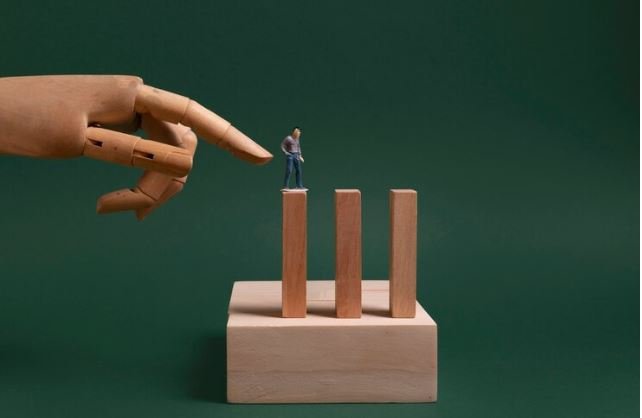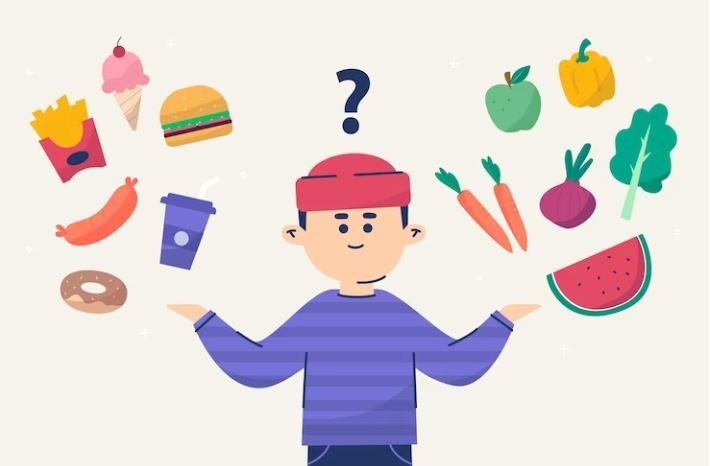One of those mental shortcuts is the Violation Expectancy Theory, a psychological concept that explains how we react when someone behaves contrary to our expectations. Violation means to break a rule or expectation, and expectancy is what we expect to happen.
This is where the Violation Expectancy Theory comes in this theory explains how people feel and respond when their expectations are not fulfilled. This idea is intriguing because it demonstrates that the shock of the news can alter what we think of other people and our world.
Violation Expectancy Theory Explained
The Violation Expectancy Theory is built around the idea of what we expect from other people and how we react when those expectations are not met.
Daily, we expect people to behave in certain ways. It could be a smile from your friend or a warm “Good morning” as you start your class with your teacher. We like these expectations because they comfort us; we think that a predictable situation is a stable one.
But, if we become used to a certain action in others and then that same person does something contrary to our expectation, we are surprised and we react differently.
It is normal to feel sad or confused if your friend chooses not to say hello and shakes you off. You may feel intimidated, even uncomfortable if your teacher is grumpy instead of what is supposed to be cheerful. Violation Expectancy Theory helps to answer that.
Our Relationship to Expectations
Like rules written in our minds of how we believe people should behave given a set reaction. These rules are what we have seen in the past or what we believe is possible. If you think people should say “Thank you” when you ease their lives, then it would disturb your bubble if they do not. It violates your expectations and so does deserve a highlight.
They are attracted to whatever violates their expectations since it is by definition a relevant gift of information. Happiness comes from shattered expectations.
This is true in some cases, where it might be a great surprise if a friend gives you the specific and rare compliment of: “your hair today doesn’t look terrible.” Sometimes they can be positive, as in a response to winning a competition, and other times negative, such as if somebody cuts you off when talking. Our responses are built around whether the sneaky move is something we like or something bad for us.
Recognizing our gut reactions to these surprises can help us cope with the unexpected using manners that we much like.

A Good Violation Of Expectations
They would have just done something that outperforms our expectations, which is a positive violation. Happiness, gratitude, or feeling special are the positive expectations that surprise can give us.
This way, if your friend surprises you by giving you a part of his lunch that will for sure make both of you closer to him/her as well as appear estate his/her kindness.
When your expectations are violated in a positive light, it is oftentimes what makes the relationship better or helps improve it because that simply shows you someone cared or someone had you on their mind.
You may feel happy and excited if your teacher gives you free time because everyone acted well that day. Because the teacher did something as small and unexpected and nice as that, just to make your day a little bit better. A useful reminder that the world creates many opportunities that are far too good to pass up.
Negative violations of expectancy
A negative transgression is when someone does something that lets us down or hurts our feelings. Surprises such as these will make us feel sad, frustrated or even angry.
This can lead you to feel betrayed if, for example, you confide in a friend who spreads your secret because they have done what was not expected of them (and certainly what you did not want).
On the other hand, negative violations can jeopardize a relationship since they have more potential to result in breached trust or disappointment. One example as to how if a teacher promises that you are going to do this amazing activity one day, but end up not doing it no proper explanation is given, which will lead students to feel let down or cheated. Such breaches disturb us because they prevent from happening what we expected.
Learning how to manage these unexpected (and often less than desirable reinforcements) could make you feel a little better equipped when things go unexpectedly your way.
How Can Expectation Violations Elicit Various Responses from People?
Responses to Expectation Violations vary from one person to another. They do that because our reactions are based on what we think, experience and how we feel about her! If it is a close friend who broke a promise, we may feel worse because we have assigned our trust to this person and demand more from him than from a stranger.
How we perceive the action can make a difference in how we respond to it. Had someone forgotten your birthday, you would be upset if in your mind that indicates the person does not care enough to remember.
But the answer is that if you believe this was an accidental omission, maybe it just does not rankle as much. This is because our thoughts about a situation affect how we feel.
Mood too can play a role in our reactions If we are in a good mood, we may not care about minor surprises. However, when we are tired or stressed, this is where even the slightest dent in a promise can feel like The End.
Surprises and Unexpected Reactions Most of Us Would Not Respond to Well
Keeping ourselves balanced by being prepared to handle unexpected actions. It keeps us in a state of calm so we can respond instead of react. However, if someone surprises you in a way that seems negative, take a breath and pause before responding. Think about why that person did what they did; is it intentional, or just an accident?
When the surprise is a good one, this is your chance to vent gratitude. Additionally, even if you feel awkward or uncomfortable during a surprise, saying “thank you” and showing enthusiasm go a long way in the future while strengthening your relationship with that person.
Our relationships will be solid when we stay calm and considerate despite the circumstances that rear their ugly heads, but everything looks picture-perfect because good relationships take work.
The Importance of Expectation in Relationships
If you want people to understand each other and be comfortable around one another, expectations are important; We all want our friends to be kind, reliable and there for us.
These assumptions are a trust foundation that serves as safe territory between us. Our friends perform according to these expectations, and we feel pleased and understood.
At home, norms determine how we treat one another in family relationships. You might anticipate your mom to care for you and help you with the homework. As a result, they may expect that you do your responsibilities and listen to their suggestions. Those expectations help everybody to see their role in the family.
People tend to get closer to each other when the expectation of a relationship is met. Unfortunately, though, this can lead to confusion or disappointment if expectations become unmet. It helps us to maintain our relationships because we know how to handle those situations.
Explanation of how others work using the Violation Expectancy Theory
With a deeper understanding of Violation Expectancy Theory, you can further understand how and why people are acting the way they do, and why we react emotionally in connection to their actions.
The first reaction that we have is a surprise to see someone behave differently than we had thought. However, understanding this idea can help us realize that maybe people do something different because they have a reason to.
For instance, you may become anxious or your feelings might be hurt if a friend suddenly becomes aloof. Before lashing out, consider that they may be dealing with something tough and it might be affecting the way they behave. When you have realized this, it can help you act with more compassion and less unkindly.
Everyone has different expectations so it is the kind of theory to have in mind whenever you want to break up with someone or realise that other relationships besides those between lovers would benefit from a bit of.. clarif..ication.
Expected From Learning to Set Fair Expectations for Ourselves
Having the right expectations means we will have minimal hurt feelings through misunderstandings and a more comfortable relationship. Having realistic expectations requires you to be straightforward with yourself and with others about your wants and aspirations. Say that being honest is something you value if, for instance, you feel your friend should be open.
You should also remember that everyone has flaws so sometimes people will mess up or do things we would not expect. That way, we are better equipped to adapt when surprises come our way. It’s easy to be patient and understanding when we first face trials if we remember that people are doing the best they can.
Healthy expectations increase the strength of our relationships and enable us to respond kindly to surprises.
Staying Positive When Your Expectations Have Been Shattered
It is natural to feel disappointed or even angry when someone Highly Sensitive breaks your expectations. Nevertheless, a positive mindset can get you by. How to stay positive when expectations are shattered
- Offer Understanding to the Other People: Many times they do wrong with no intent of harming us. Give them the benefit of the doubt and maybe they are not even aware that you expected something.
- Control the controllable: You can’t control what others are going to do, but you CAN control how YOU react. Pick a relaxed and polite response that you are probably let down.
- Express Yourself: Never be afraid to tell someone how you feel if they have broken your expectations. Calmly express your feelings and explain to them what happened (just so they have an idea as to why you’re upset). Positivity keeps us emotionally balanced and our relationships strong when things do not as we planned.
Conclusion
To begin first, we must understand the proven theory of violation expectancy so when others behave in a manner that is unexpected as per our expectations, why do we feel an emotion this is well explained by the Violation Expectancy Theory They remind us that our responses are shaped by what we know and the perspective we bring to novelty surrounding actions.
If we learn how to navigate through these, then when surprises happen next time can be responsive instead of reactive and nurture our work and personal relationships.
If we get this theory, we know that everyone has different ideas about their expected behaviour and that sometimes people thrive on being unpredictable. The most fertile soil for surprises is the setting of healthy expectations, positivity, and willingness to handle them with patience and kindness.


